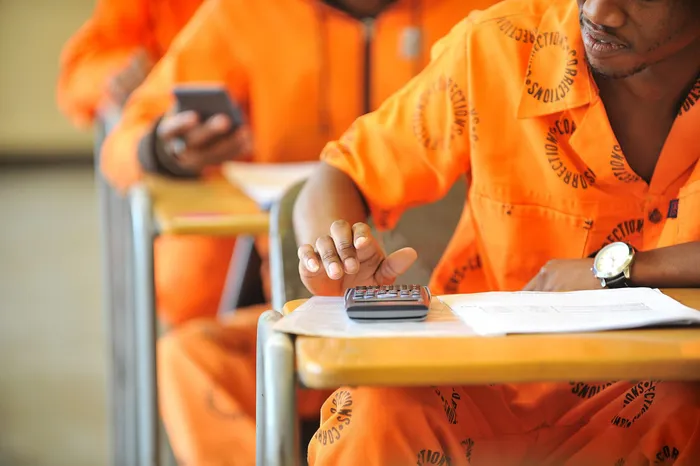200 inmates to sit for matric exams

More than 200 inmates will be writing their matric exams in 14 Department of Correctional Services centres around the country. Picture: Itumeleng English More than 200 inmates will be writing their matric exams in 14 Department of Correctional Services centres around the country. Picture: Itumeleng English
DURBAN - A total of 211 inmates from 14 Department of Correctional Services (DCS) schools are scheduled to sit for their matric final exams later this month. This marks a 63% increase from the 129 that sat for the exams last year.
“The notable increase in the number of inmates enrolling for the National Senior Certificate (NSC) examinations year-on-year demonstrates our rehabilitation efforts through formal education so that we can increase literacy levels of inmates, thus giving them a second chance in life,” said the Acting National Commissioner James Smalberger.
Also read: Inmates get a resounding 75% pass rate
Smalberger said correctional services have not only increased the number of matriculants, but the quality of results has been increasing over the years. This was further demonstrated by the increased enrolments on subjects such as mathematics, accounting and physical science.
He said the department was satisfied with the level of preparations, and had given necessary support to inmates in order to achieve best results possible.
“I wish all inmates the best of luck and I am confident that a 100 percent pass in all 14 schools is real,” said Smalberger.
Working together with the Department of Basic Education (DBE), DCS spokesman Singabakho Nxumalo said they want to assure citizens that the 14 accredited centres would run a credible examination process. In addition to the resident invigilators appointed by DBE, there would be strict monitoring and impromptu visits to all centres.
Also read: Unregistered Durban school 'cheats' pupils
Education and skills development are at the forefront of rehabilitation programmes. This is also evidenced by the 10 526 offenders attending educational programmes in the current financial year.
Nxumalo said the formal schooling inside correctional centres would continue to be the beating heart of rehabilitation and remains crucial in building an informed citizenry.
“It remains compulsory for inmates without a qualification equivalent to Grade 9, to complete Adult Education and Training (AET) level 1 to 4.
“This is strategically aimed at eliminating illiteracy, under qualifications as well as the absence of critical technical skills, which are a key requirement for one to either source employment or be self-employment,” he said.